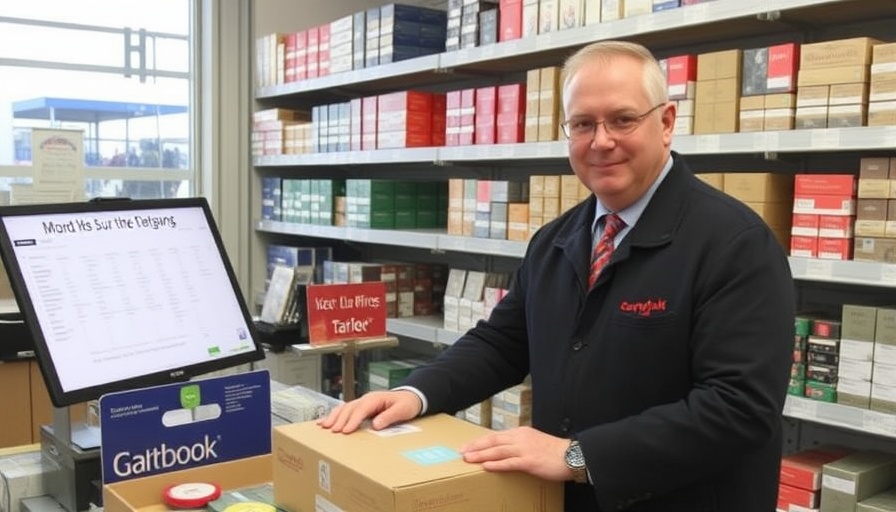
How New EU Tariffs Could Shake Up Local Dallas Businesses
As the dust settles around the recent announcement of significant tariffs on imports from the European Union, local businesses in Dallas, TX, particularly those that rely on international goods, are bracing for impact. Owners like Amelie Monvoisin, of Marcel Market, reflect the anxiety felt by many. Her store, known for its eclectic selection of French groceries and goods, is at the heart of this unfolding situation.
The Uncertainty of Tariff Impacts
President Donald Trump’s recent decision to impose a 20% tax on imported items from the EU has sent shockwaves through local businesses. Amelie is clear, stating, “Every single product is imported,” highlighting the challenge many face. The unknown factors surrounding how extensive these tariffs will be leave a cloud of uncertainty. Will every product be taxed? How will this affect pricing? The lack of clarity makes planning difficult for small businesses, which are already navigating post-pandemic economic realities.
The Immediate Effects on Consumer Prices
Local community members like Jacob Keithley have expressed their concerns about potential price hikes. If tariffs apply broadly, businesses may struggle to absorb the increased costs without passing them onto consumers. The fear of losing access to cherished products from Europe adds an emotional layer to the economic debate. Businesses like Marcel Market are working with suppliers to mitigate these costs, but the question remains: how much longer can they hold the line against inflation pressures?
Coping with Change: How Local Businesses Adapt
For many entrepreneurs in Dallas, adaptable strategies will be key to weathering this storm. As Monvoisin notes, she has survived the COVID-19 pandemic and even expanded her operations. This resilience illustrates a broader trend among local businesses: the ability to innovate and pivot. Many are exploring alternative suppliers, potentially prioritizing domestic brands to mitigate tariff impacts while fostering local economic growth.
Lessons from the Past: Navigating Economic Shifts
Historically, shifts in trade policy have had mixed outcomes for businesses. Small enterprises often bear the brunt of such changes due to tighter margins and fewer resources. The experience of past tariff implementations teaches that community support and strategic diversification can be lifelines.
Future Predictions and Opportunities
Looking ahead, it’s crucial to consider how Dallas businesses not only cope with tariffs but potentially thrive in the face of challenges. Experts suggest that there may be opportunities for growth in local production and sourcing. This shift could lead to a more resilient local economy, less dependent on imported goods and more conducive to fostering homegrown enterprises.
Community Support: A Critical Element
As local businesses brace for the potential fallout from tariff implementations, community support becomes essential. Engaging with local markets, shopping at nearby businesses, and advocating for fair trade practices can empower entrepreneurs. Keithley’s comments about worrying over access to items emphasize the importance of community consciousness in supporting these establishments through uncertain times.
Conclusion: Taking Action for Local Business
In light of these shifts, Dallas residents are encouraged to keep informed about changes affecting local businesses. By understanding the impact of tariffs and actively supporting neighborhood shops, individuals can help ensure the vitality of their community. As businesses like Marcel Market adapt and navigate the changing landscape, they exemplify the resilience needed in the face of economic uncertainty. Your choices as consumers can play a pivotal role in determining the future of these businesses.
 Add Element
Add Element  Add Row
Add Row 



 Add Row
Add Row  Add
Add 


Write A Comment